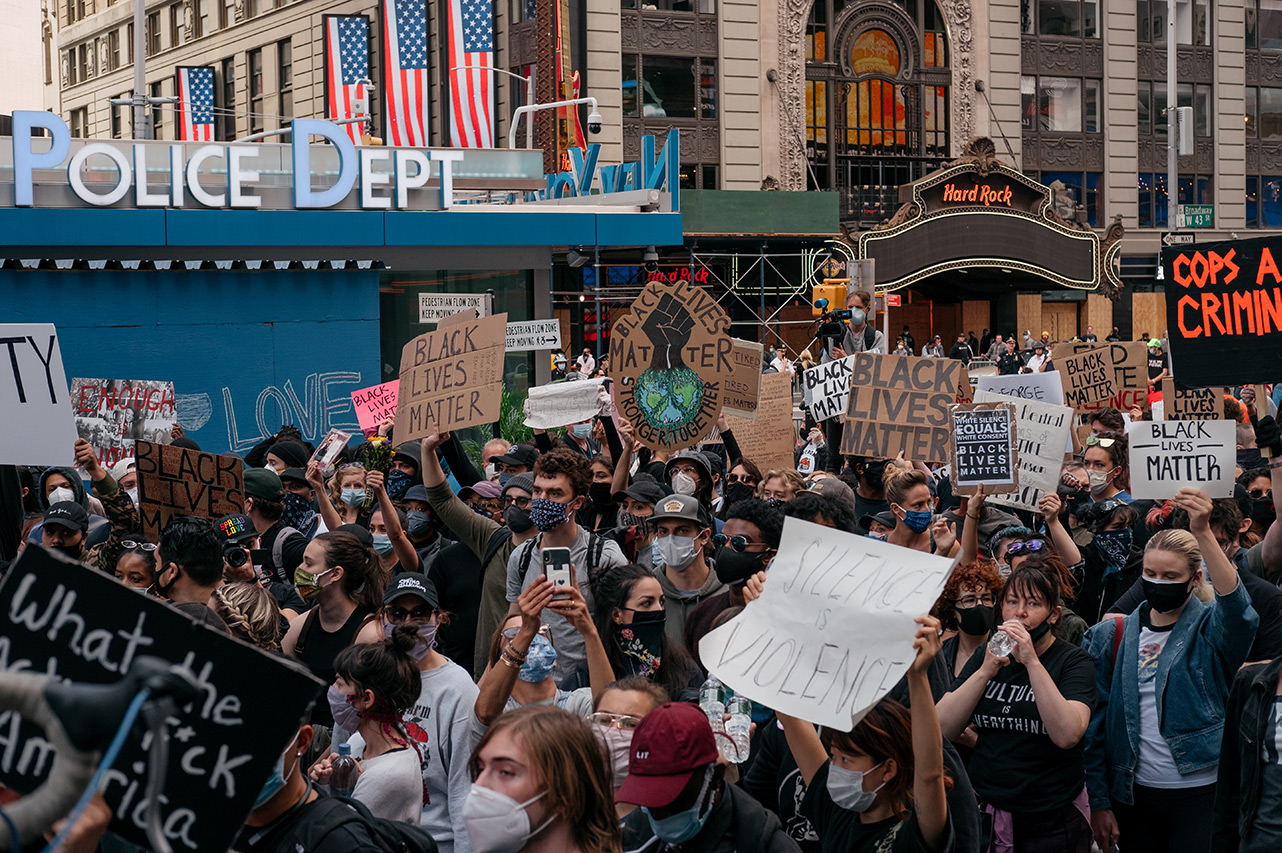
An Epic American Failure: The U.S. Response to the Killing of George Floyd and Protests in Its Aftermath
How a nation responds to a tragedy says much not only about the character of its people, but also the quality of its political leadership. The response of America’s leaders on both sides of the political aisle to the killing of George Floyd and the looting and rioting it has sparked has been disappointing at best, outrageous at worst.
For those appalled by Floyd’s death and the ensuing protests, mayhem and violence in 140 cities across the nation, consider another incendiary moment in American history.
Fifty-two years ago, just after the legendary civil rights leader Rev. Martin Luther King Jr. was shot by a white man, Sen. Robert F. Kennedy got on the back of a flatbed truck in Indianapolis to speak to the largely African-American audience that had gathered to welcome him. Discarding his prepared speech and ignoring the authorities’ pleas not to speak, he told those assembled the shocking news that King had been killed. As members of the audience gasped, Kennedy called for calm, compassion and social justice, and spoke publicly for the first time about the assassination of his own brother, John F. Kennedy, five years earlier.
He understood black people’s outrage and pain, he said. “For those of you who are black and are tempted to be filled with hatred and distrust at the injustice of such an act, against all white people, I can only say that I feel in my own heart the same kind of feeling,” Kennedy told them. “I had a member of my family killed, but he was killed by a white man.”
Violence, he warned, would only further polarize the nation between black and white and undermine King’s life-long mission of fostering love, justice and unity.
He did not use his powerful bully pulpit to try to unite the racially polarized land. He tweeted fuel on the cities’ fires by suggesting that looters might be shot and blaming virtually everyone else for the mayhem: Joe Biden, Minneapolis’ mayor and other “Liberal Governors and Mayors,” the media, of course, and now Antifa.
But what about the Democrats? While progressive mayors and governors have been focused on the need for police reform, most have had had distressingly little to say about the rioting and looting that have destroyed hundreds of small businesses throughout the nation. And in quelling street strife and civic mayhem, local leadership is crucial. Notoriously, Jacob Frey, the Minneapolis mayor said of the wanton destruction in his city that its targets were “just brick and mortar.” Minnesota Gov. Tim Walz hid from the press for almost a day after the mass protests began, refusing to issue a statement. When he finally spoke, he blamed Frey for his belated call up of the National Guard.
On Sunday, New York Mayor Bill de Blasio joined Trump in blaming anarchists, a “small group of people” for the “well organized” violence. While he has publicly defended the NYPD, cops say they lack deep support from him, and that they were ordered not to “provoke” protesters despite a third straight day of violence that prompted arrests of 345 people, injured 33 cops and left 47 NYPD cars damaged. He did call for a 30-day investigation — seen largely as a delaying tactic.
Former President Barack Obama is no Robert Kennedy. On May 29, after the violence began, he issued a statement on Twitter. Returning to “normal” was not good enough, his bland tweet asserted. Americans had to do better.
This piece originally appeared at the New York Daily News
______________________
Judith Miller is a contributing editor of City Journal and adjunct fellow at the Manhattan Institute. Follow her on Twitter here.
This piece originally appeared in New York Daily News